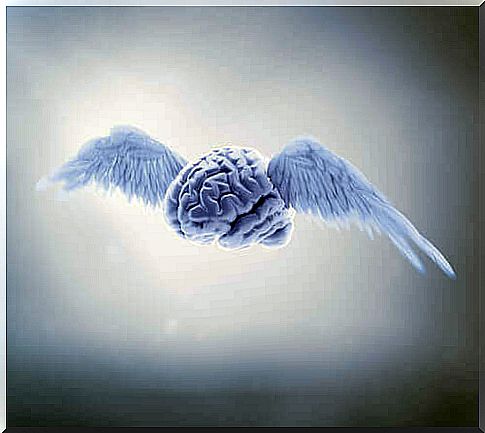Open Mind Yes, But Without Giving Up The Brain

Children often show natural abilities that never cease to amaze us. Among these, that of looking at the world without too many preconceptions; which guarantees them a lower resistance to learning. In this sense, children embody the paradigm of the open mind.
Adults, on the other hand, operate with predefined patterns that are modified, revised or refined over time. These patterns make the world more predictable, and often generate resistance to the new, fueling the fear of change. Science, in this case, provides us with excellent examples of an open mind . Copernicus, Galileo or Einstein himself experienced the force that can be deployed from a wrong but valid foothold.
According to some scholars, such patterns influence important aspects such as education and the possible behavioral problems in children that derive from it.

First impressions
Returning to the microscopic level, to the personal level, we know how difficult it is to change the first impression we have of a person. Because? Because starting from it we begin to form ideas or to formulate hypotheses about what happens around it. A sand castle that involves a considerable cognitive effort (investment), but which we do not disdain.
In this sense, we like to see others as coherent beings, sweeping away one of our main certainties: we are pure contradiction. Interested beings whose interest varies. Emotional beings whose mood changes. Individuals with a personality, who learn and try to adapt.
Keeping an open mind therefore means partly giving up a position in which we feel comfortable. It means questioning what we know and what we have built. If we have the idea that Peter is a generous person, we will tend to interpret his actions as motivated by an interest in others. On the contrary, if we think he is selfish, we will tend to interpret his every act of generosity as a way to wash his conscience.
Some might even think that this doesn’t matter, because after all, Peter is what he is. However, our understanding of the world based on preconceived ideas has significant consequences. For example, in the way you treat others. We will accept the help of the Peter whom we consider generous and we will suspect the Peter whom we consider selfish.
In this sense, keeping an open mind allows us to be flexible, also willing to operate patterns that we have already adopted. However, how can an excess of open-mindedness penalize us?

Open mind, yes, but without neglecting the ability to analyze
There are many new theories that travel from mouth to mouth, from jester to jester and dissolve under the curious and relentless lens of science. There are many phenomena detected in a first study and that subsequent studies have no longer been able to replicate. And just as many are those born from personal experiences for which later only a favorable confirmation prejudice acted.
Furthermore, every year the media spread reports of people who have given up medical treatment, placing all their trust and hope in alternative treatments that are well-marketed, but of no effect. People with an open mind to the new and in need of a foothold; a need that leads her to invest her future in this kind of interventions, not supported by serious studies.
We can deduce from this that having an open mind can undoubtedly enrich us and help us find new solutions, but it is of little use if we give up being critical, as well as cautious, of everything we embrace again and which could have disastrous consequences.









